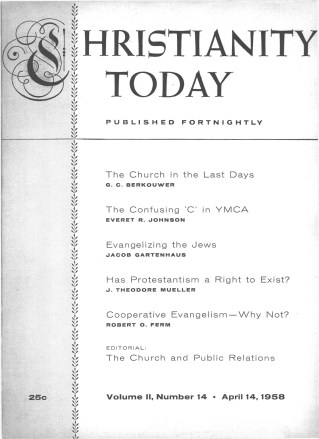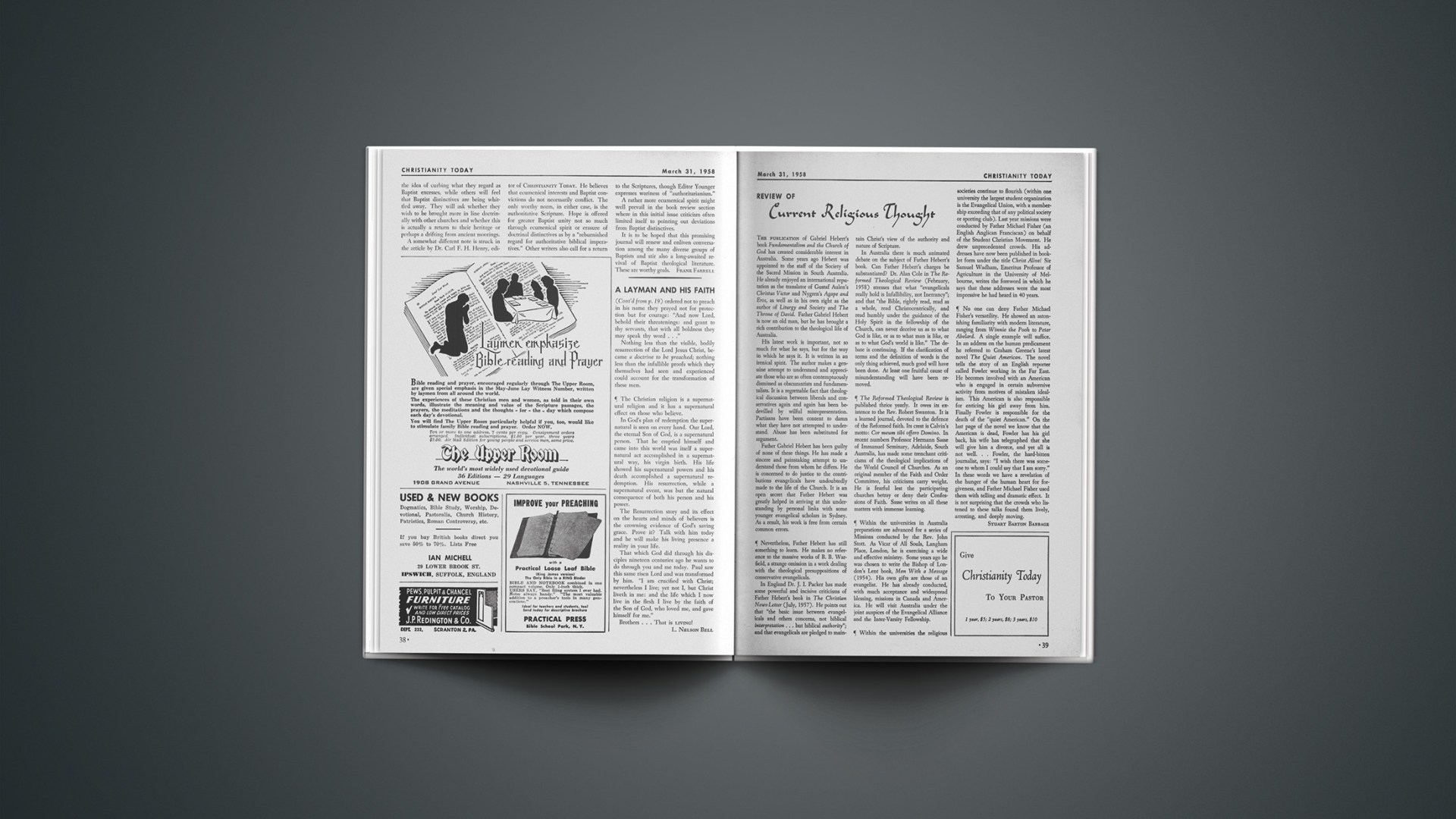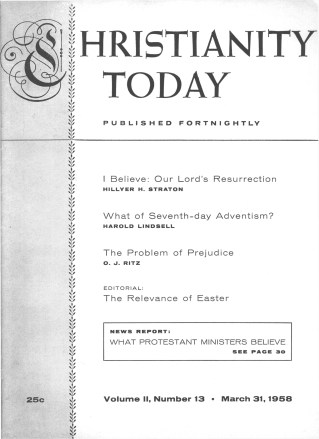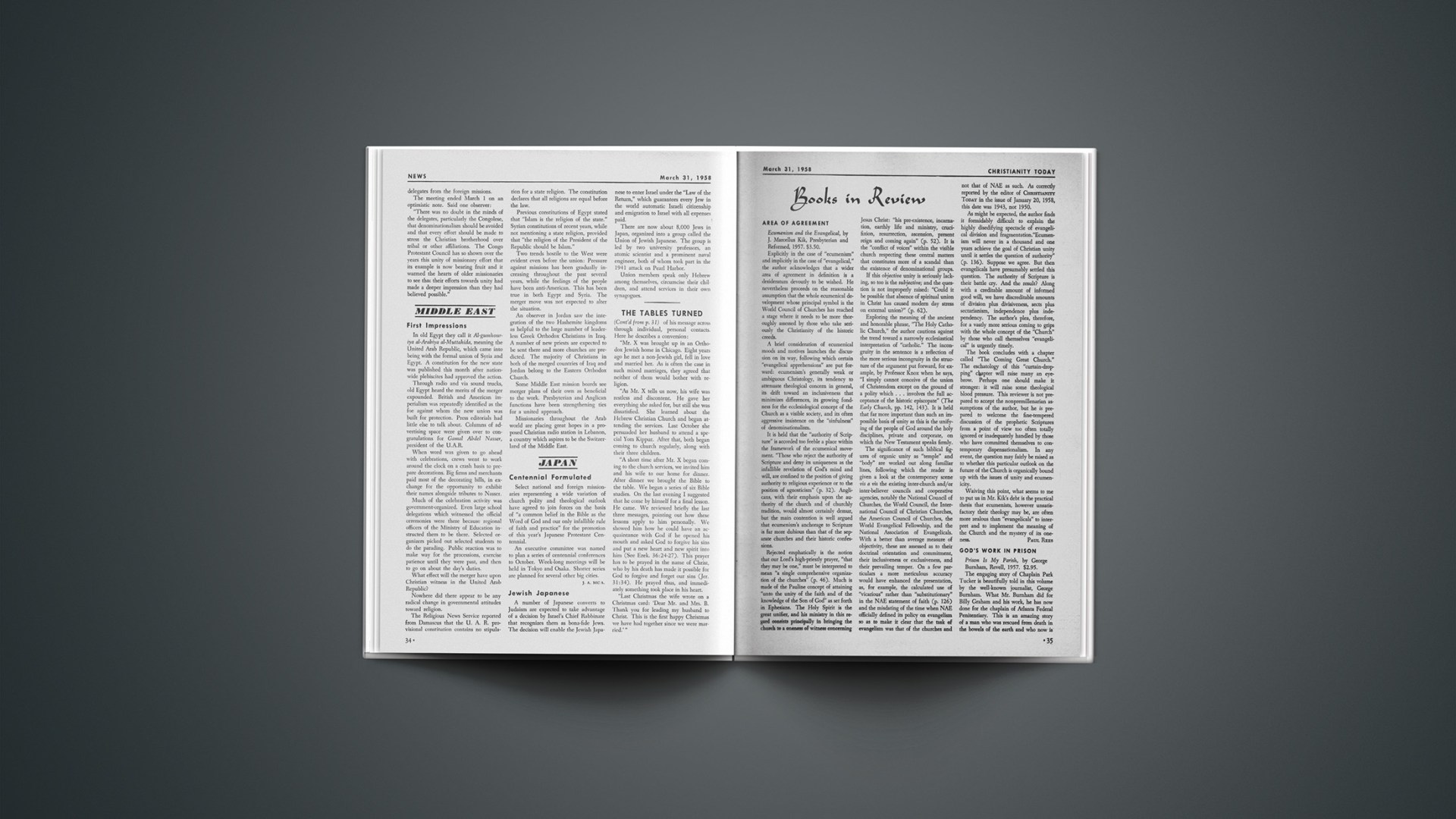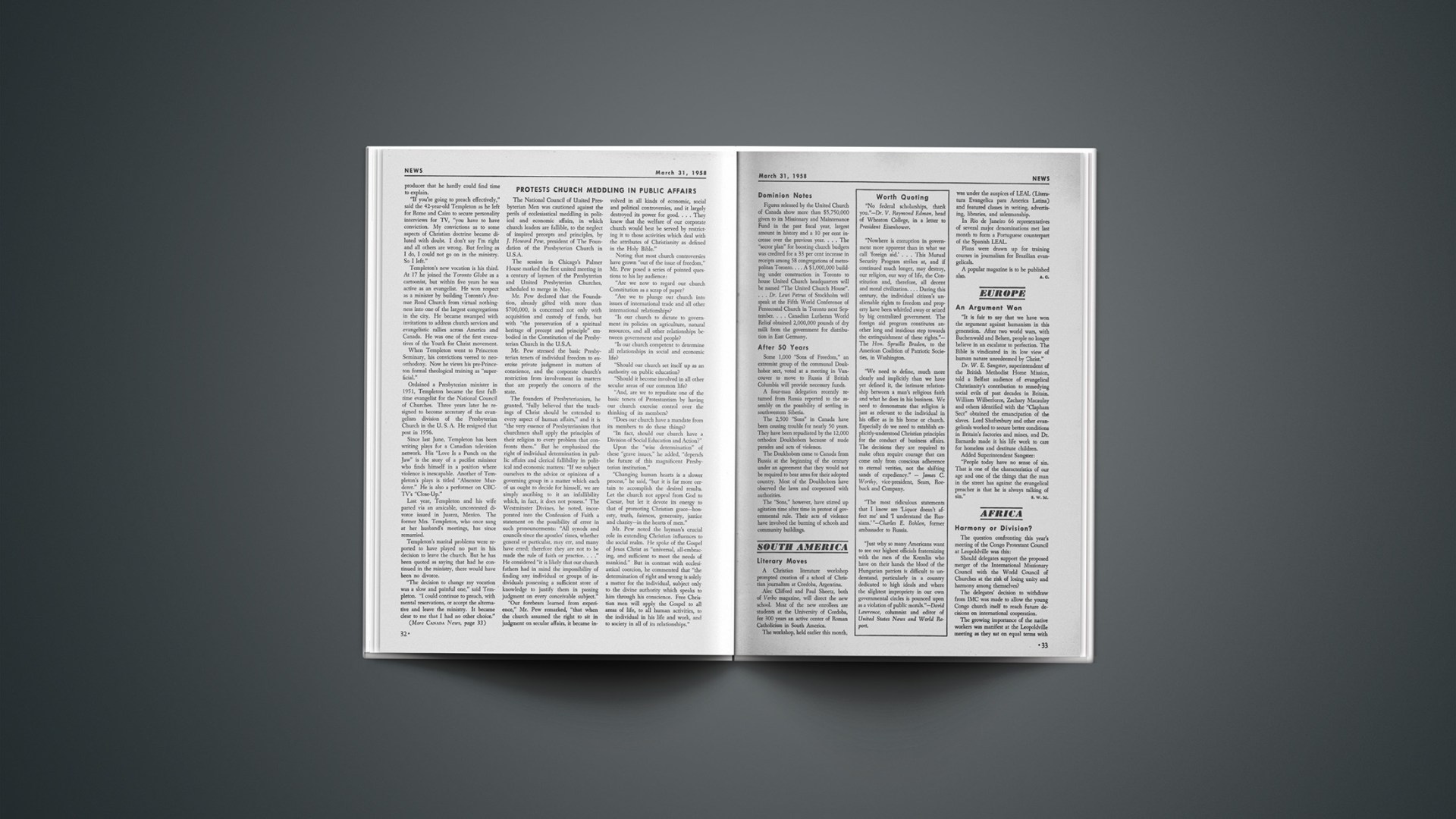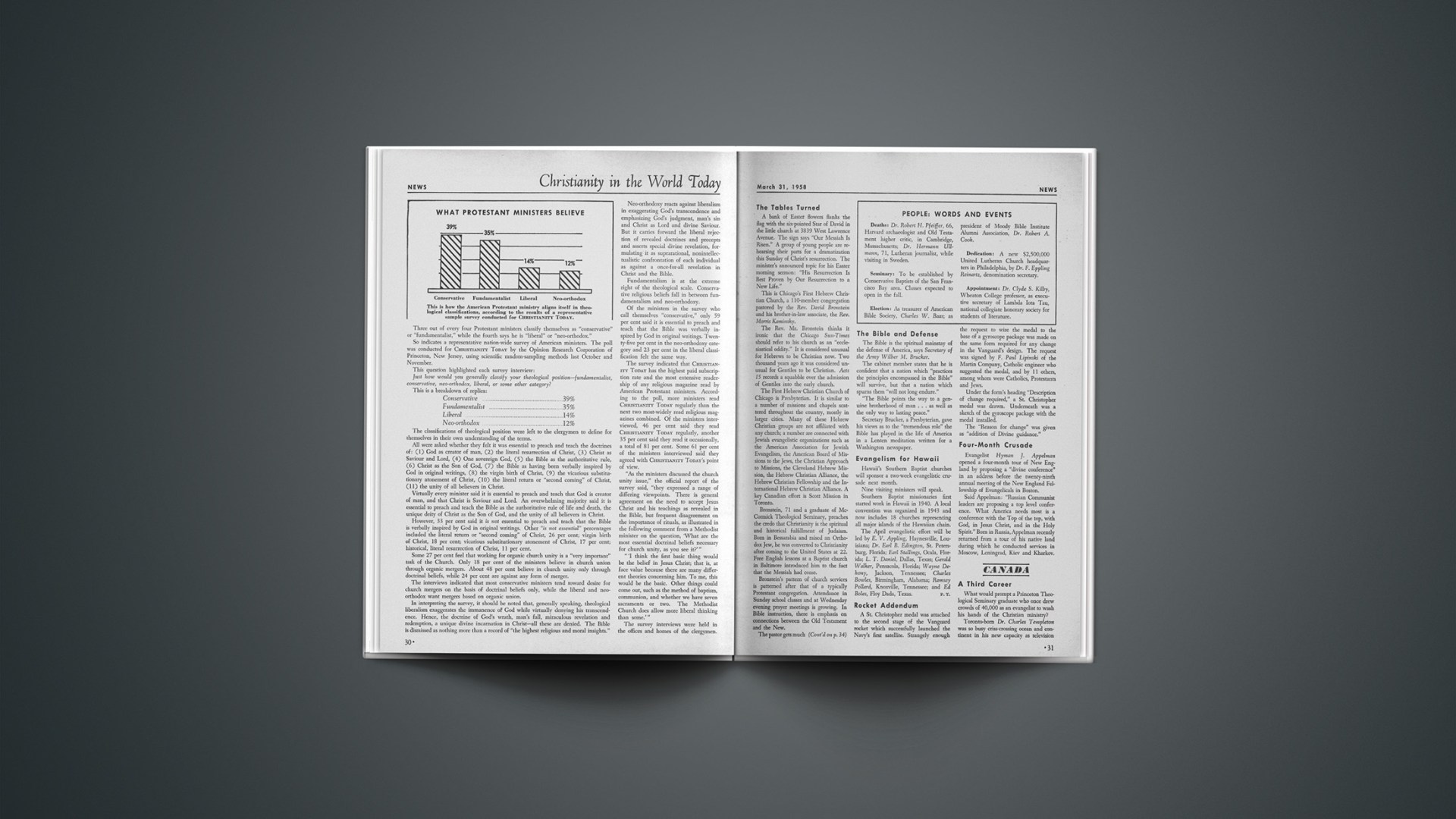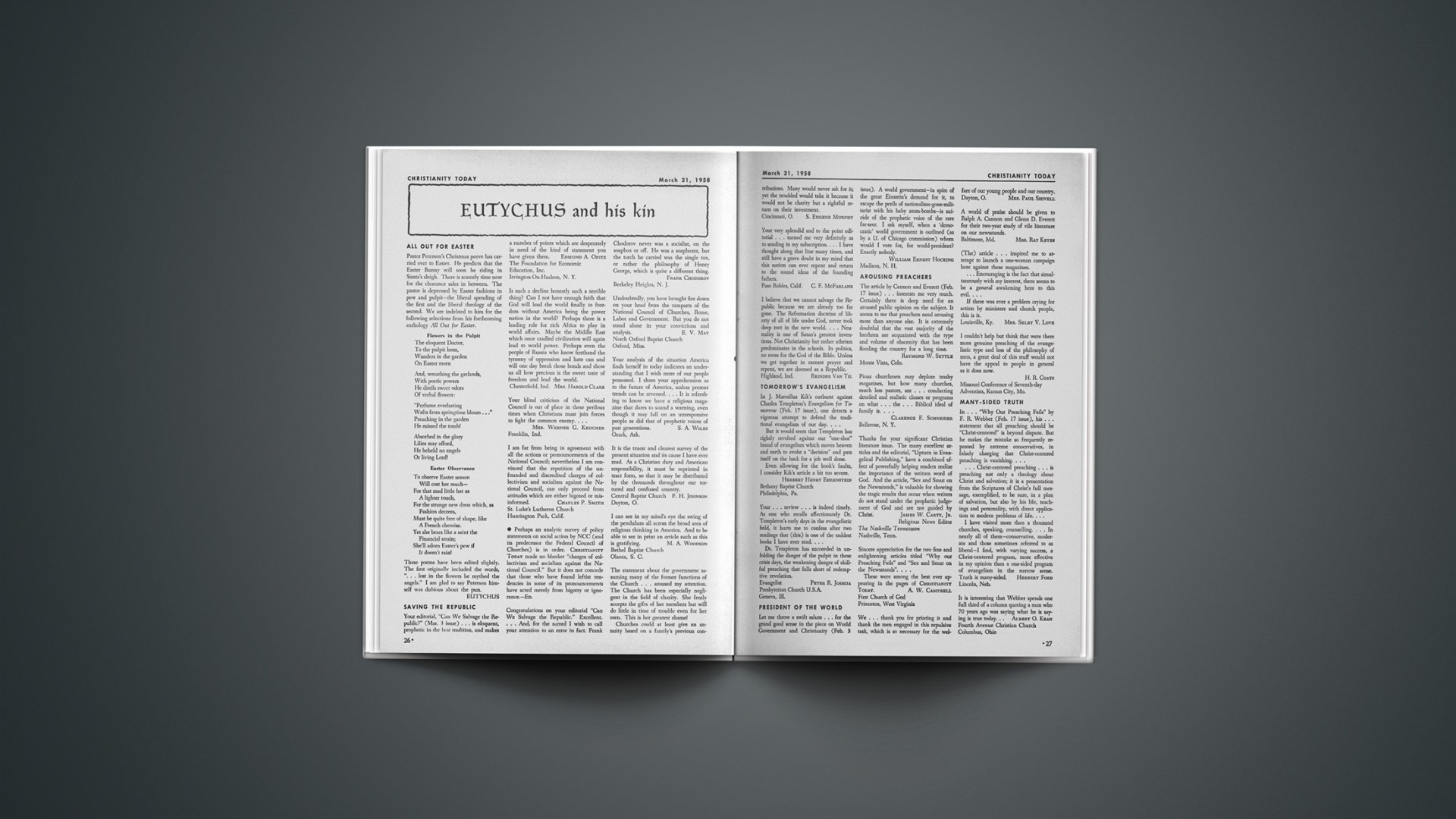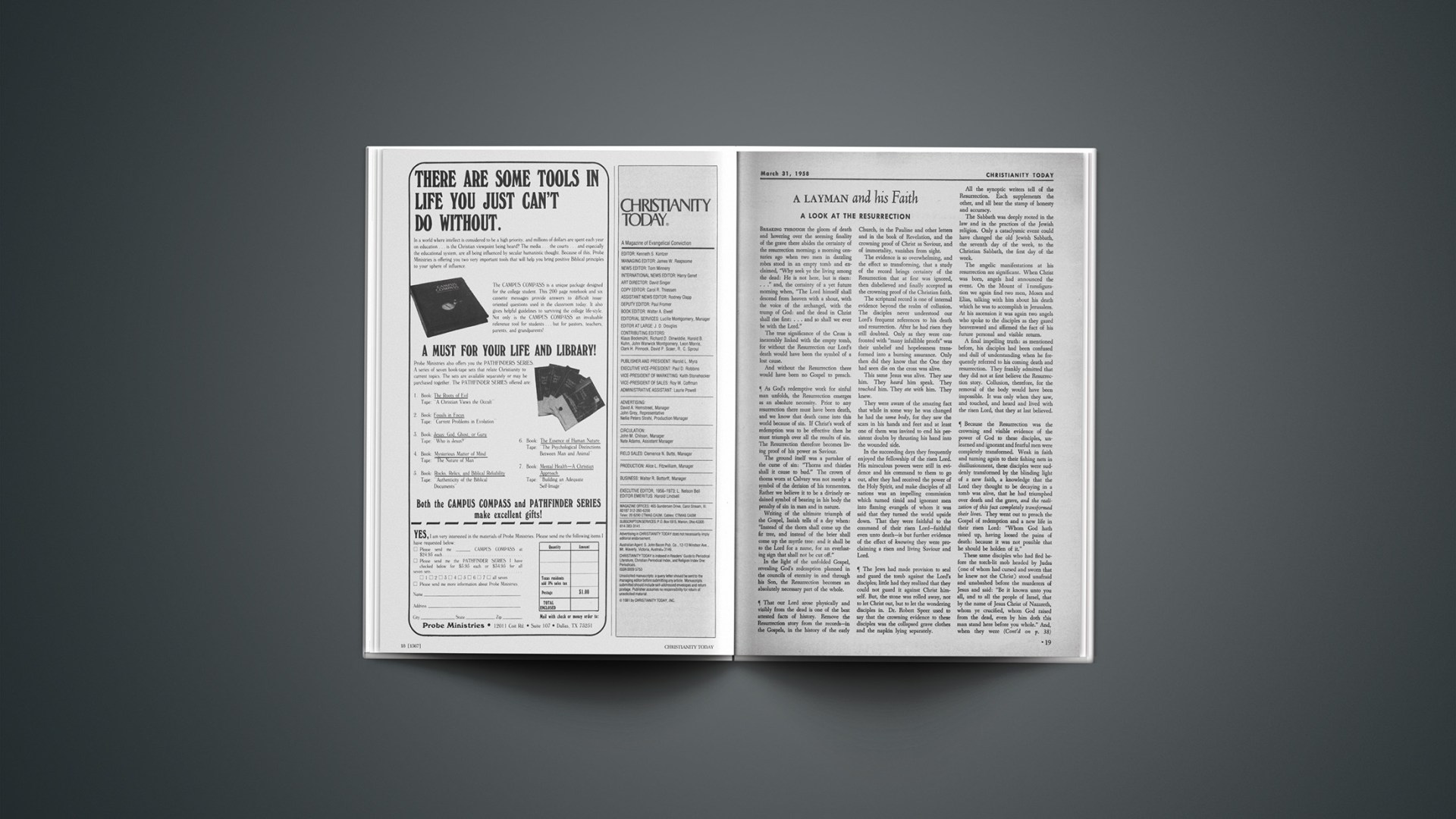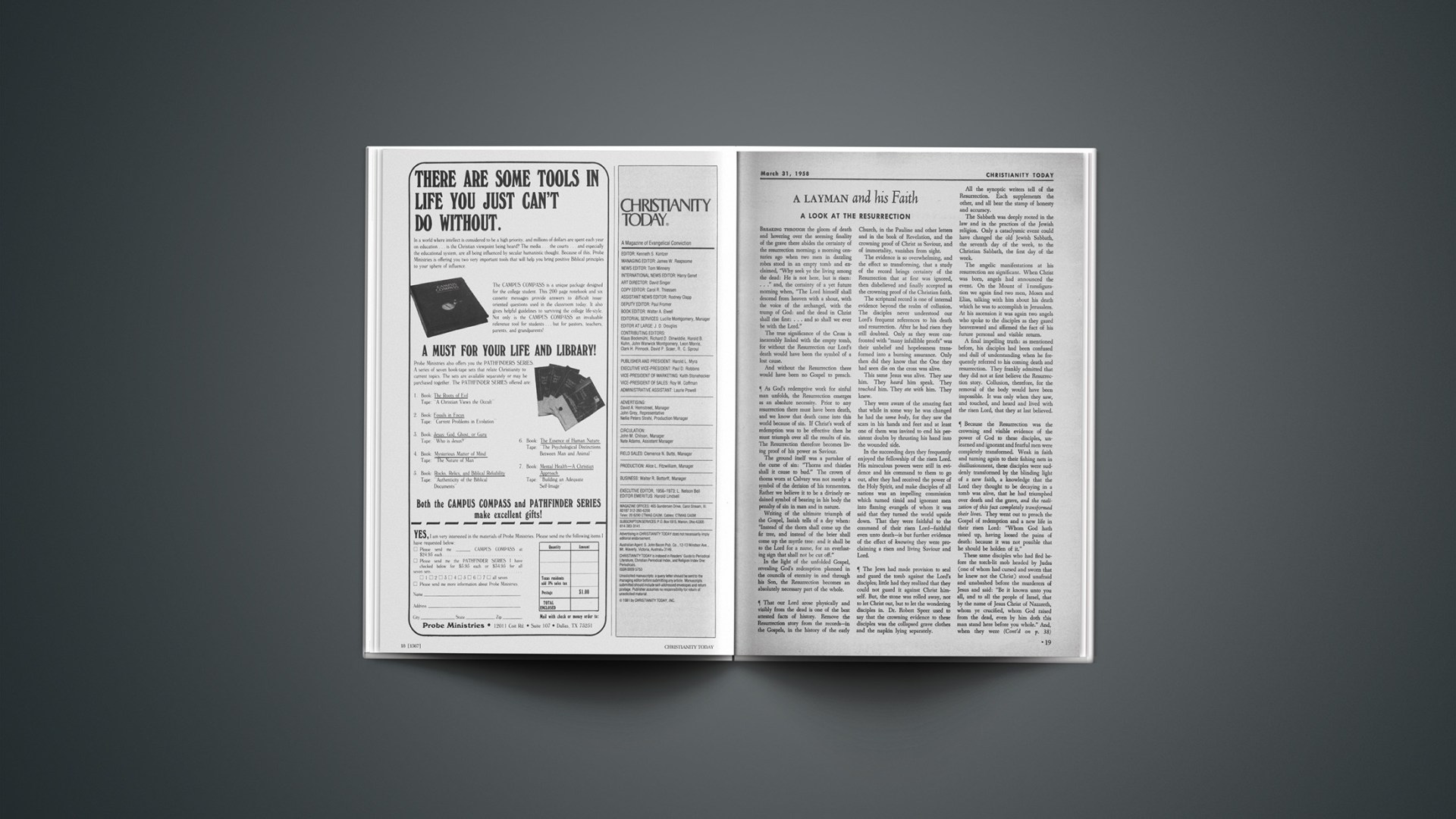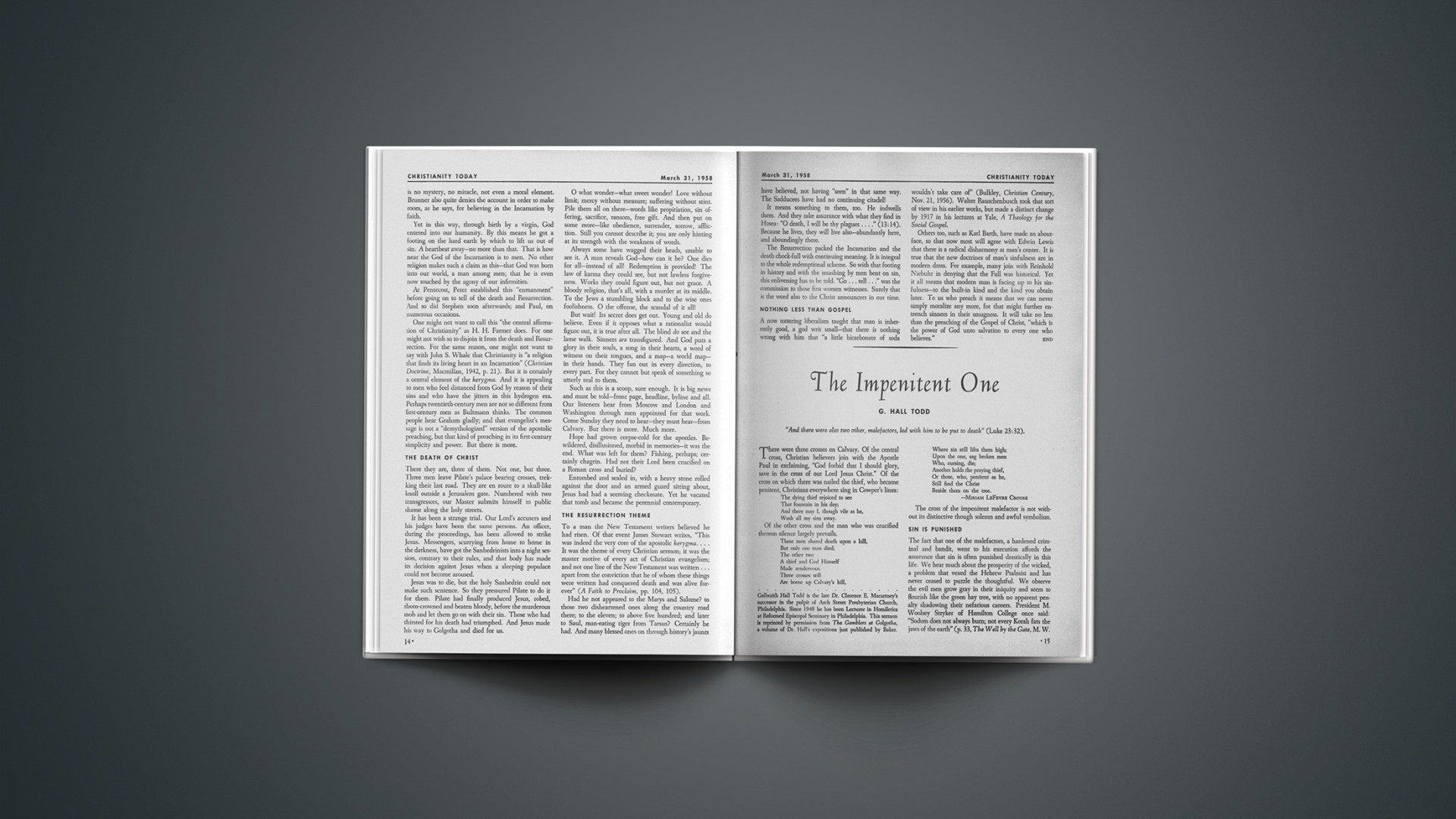Eschatology today is demanding the energetic attention of both the Church and its theology. This is in contrast to an optimistic confidence that prevailed during the last century when the Kingdom of God became an expected evolutionary development within culture and morality, and when the study of eschatology was but a theological curio. The catastrophes of the past generation, however, have forced the doctrine of “last things” to the place of the most crucial of theological questions. After the First World War, eschatology could no longer be thought of as an antiquated name for the final phase of man’s moral achievement. Its significance forced the attention of the Church, but was now in the form of crisis and judgment thundering from God and his holy place. Eschatology came to mean judgment upon our sinful world. And not being content to form the last chapters of dogmatics textbooks, it demanded a place in the center of things and a ruling over the whole theological scene.
The Crisis Of The Present
It was for this reason that Barth wrote some 30 years ago that a Christianity not totally eschatological was not Christianity at all anymore. The last things could no longer be considered as events lying in distant future. Rather, they were the crises of the present, permeating all human culture, morality and religion. The last days represented present judgment upon human unrighteousness and disobedience. And the last things, upon us now, were the signs of a border situation now made visible by the eternity of God. All signs of the times were seen—by Paul Althaus, for example—as being presently fulfilled in the midst of history. And the result was that hardly any perspective remained for an actual end at the close of history.
But a new and noteworthy nuance appeared somewhat later in the theological situation. History had become the stage for a drama of shattering events. Because of this, attention was drawn back to an examination of the significance of history itself. Althaus revised his opinions in later editions of his eschatological studies. Barth in 1940 criticized his own earlier commentary on Romans for allowing too little place for consideration of the actual future and too much emphasis on the permanent crisis of eternity ever impinging on time. With the significance of history coming more to the foreground, eschatology became a very realistic matter. Hence, the question, “What can be expected of the future and what must the Church mean by its expectation of the coming of Jesus Christ?” became vital.
Reaction Follows Reaction
This intense interest in the last things was partly prepared for by the so-called consistent eschatology of men like Albert Schweitzer. At the beginning of the century Schweitzer wrote that the liberal picture of Jesus was a distortion of the New Testament Jesus. The New Testament, he said, was totally eschatological. Jesus expected the coming of the Kingdom of God in his own time. His expectations assertedly were not fulfilled, and Jesus had mistakenly taken over apocalyptic expectations common in his day. But it still remained true that the New Testament was filled with the message of the coming Kingdom. The great drama of church history, according to consistent eschatology, was created by the Church’s attempt to come to rest in New Testament eschatology despite the failure of Jesus to reappear. The Church attempted to give to the New Testament an authority which it had really lost in the failure of its imminent eschatology ever being realized. The drama was entitled, The Church and the Great Disappointment.
Since the time of that movement, it has become clear that the New Testament does not teach that something absolutely special is going to happen in the future. This is the thinking that defines the eschatological view of the present time. The New Testament sees the future in inseparable connection with what has already occurred in the past. Christian expectation is determined by the fact that the decisive turn in the history of salvation took place at the Cross and in the Resurrection of Jesus Christ. This is not to say that the future has no more real significance since everything decisive has already happened. But it does mean that we should not anticipate anything in the future without an eye fixed on the past. We look to the future after looking back at the past. The eschatological expectation of Christianity is part and parcel of its confession of redemption. It is unquestionably clear that a denial of redemption through the Cross will always lead to an emasculated eschatology. In the light of this, it is quite in conflict with the New Testament to suggest that the early Church lived in bitter disappointment at the failure of Jesus to return.
The Church lived out of what had already happened. With its joy in what had taken place, it looked for the coming of Jesus in the future. But the chronology of his coming was no longer decisive for its faith. Rather, the Church placed herself in the hands of her Lord who would blaze his future in the paths of history.
In our day we have seen the notable New Testament scholar Oscar Cullman insist that the really decisive event of history has taken place in the Cross and Resurrection. It was thus that he has emphasized again that the future is a consequence of that one decisive event. In 1933, Martin Buber of Jerusalem declared that we manifestly are living in an unredeemed world and that world history has not yet been laid bare to its foundations. Hence, said Buber, we cannot say that we live for the coming of the end. This is exactly what the Christian faith denies. Christianity denies it because it affirms that the decisive turn of events has indeed taken place. It is this that the New Testament proclaims on every page.
The apostle preaches that the great mystery, hidden for ages, is now revealed (Rom. 16:25–26). Christ has appeared now, “in the end of the world” (Heb. 9:26). This is the mystery that forms the foundation of our expectations of the future. This is why the doctrine of redemption must put its stamp on eschatology. Denial of the apostles’ doctrine of redemption will always rob eschatology of its essential significance.
History In Tension
The message of the New Testament is pre-eminently clear at this point. We hear of the last days that came upon the people at Pentecost. John speaks of the last hour as having already begun. This gives a tension to the time following Pentecost. History became earnest and filled with tension. And as this last hour dawned, of course, we know that the resistance of the power of darkness stiffened. John does not ask himself how it is possible that so much resistance and darkness could exist in view of Christ’s victory. He sees in it evidence of the reality of redemption. There are many antichrists, he says, and thereby we do know that it is the last hour (1 John 2:18). The strengthened resistance of darkness sets in because the decisive event of the past has really occurred (Luke 10:18; Rev. 12:10).
The entire history of the world, even in its darkest aspects, is completely defined by the salvation of God. He who denies redemption must look for everything from the future and in utopian illusions. But in the Church “of the last days,” expectation of the future gets its tone and accent from the great mystery that has been revealed already in history. This is where the break between Buber and the Christian hope becomes evident. And what we must remember in these critical days is that neither darkness, evil opposition, nor demonic powers should be allowed to shock our faith. We must recognize, in all these, evil’s last defense against what will become irresistible reality.
The Church “of the last days” is not faced with a dilemma, either in present or in future time. It is the First Epistle of John that lays emphasis on the last hour, and it is also filled with the “new commandment” for the present time. And in the most eschatological chapter of the Bible we find Paul concluding with the comforting thought that our labor is not in vain, and not empty in the Lord (1 Cor. 15:58). He does not do this in an attempt to make life bearable. He proclaims it as part of his eschatology. The future will bring the meaning of our present labors into light.
Responsibility In The Present
And so the whole life of the Church of Christ is eschatologically defined, which does not mean that it has no interest in the present. On the contrary, it is precisely because of its expectations for the future that it has much to do in the contemporary world. There is a form of pessimistic eschatology that leads to world conformity. I refer to the inevitable future in which we all must die and because of which some are led to say, “Let us eat, drink and be merry” (1 Cor. 15:32). But the Christian view for the future is totally different. In Christian expectation, life here and now is given meaning and worth. It is unjustifiable to have no interest in the world for which God has so much interest and had so much love.
The Church faces the future and enters the last days with responsibility and joy. The Church is called so to live. This calling has been fulfilled by us only hesitantly and with trembling. Life is hard and its meaning seems often to elude us. Our level is not often that of John, who was able to overcome all darkness in his yet stronger faith and love. We are more likely to ask, who shall show us any good? Many asked this question during the old covenant (Psa. 4:6), but the sigh is still heard in our time—even within Christian fellowship. It is the despair of believers who fail to see the significance of the present in the light of the eschaton, the final consummation.
The Church is thus tested while it waits. It is tested where it really lives. It is tested in the use of its talents, in the preaching of the Gospel, in its daily work, and in its prayers and benevolence. Eschatology is not a kind of futurism. It leads to responsibility for the here and now. Any eschatology that misses this is illegitimate, and must find the way of responsible living in the present. It is a way that leads through a somber world. But a voice calls through the darkness. We can recognize the voice: “He who follows me shall not walk in darkness, but shall receive the light of life.”
G. C. Berkouwer is Professor of Systematic Theology at the Free University, Amsterdam. He is the author of many books, best known of which is the series of Studies in Dogmatics. His most recent work is The Conflict with Rome, and he is a frequent contributor to Christianity Today. The present article is the first of a new series of 12 essays on Eschatology, by various writers, announced in the March 17 and 31 issues.


